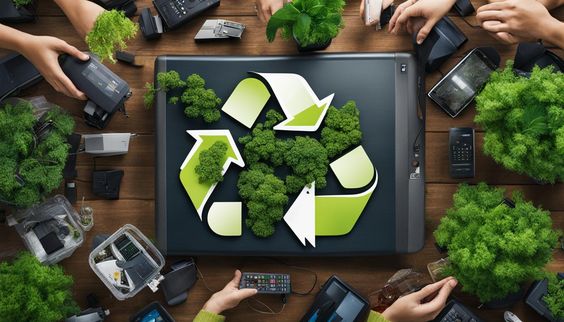
Electronic Waste
In today’s world, technology has become an integral part of our daily lives. However, one of the serious issues that have arisen with technological advancements is the increase in electronic waste, or e-waste. This type of waste includes discarded electronic devices, old household appliances, and IT equipment, and it has significant negative impacts on the environment and human health.
Environmental Impact of Electronic Waste
1. Soil and Water Pollution
Electronic waste contains harmful chemicals such as lead, mercury, and cadmium, which can leach into soil and water sources. These toxic substances can lead to soil contamination, reduced water quality, and harm to natural ecosystems. Water pollution can have serious effects on aquatic life and disrupt the food chain.
2. Greenhouse Gas Emissions
Improper processing and recycling of electronic waste can release greenhouse gases such as carbon dioxide and methane. These gases contribute to climate change and global warming, exacerbating environmental problems.
3. Damage to Ecosystems
Electronic waste can directly and indirectly damage ecosystems. For example, soil and water pollution can lead to reduced biodiversity and destruction of natural habitats.



Health Impact
1. Health Risks from Direct Exposure
Harmful chemicals in electronic waste can pose health risks through direct skin contact or inhalation of toxic fumes. These substances can cause respiratory problems, neurological disorders, and skin issues.
2. Long-Term Health Effects
Exposure to toxic materials in electronic waste can have long-term health effects, including an increased risk of chronic diseases and cancer. These effects may manifest over time and result in serious health problems.
3. Health Risks for Vulnerable Communities
Vulnerable communities living near electronic waste disposal sites face higher health risks. These communities may encounter significant health challenges and require urgent measures to protect their well-being.
The Need for Action
1. Importance of Proper Recycling
To mitigate the negative impacts of electronic waste, proper and responsible recycling is essential. This includes using appropriate technologies for extracting and processing toxic materials and reducing the production of new waste.
2. Promoting Sustainable Consumption
Educating and promoting a culture of sustainable consumption and waste reduction at the source can help address issues related to electronic waste. This includes using products with longer lifespans and changing consumption patterns.
3. Collaboration and Coordination
Joint efforts by governments, industries, and communities to better manage electronic waste and support recycling initiatives can minimize negative impacts and contribute to environmental protection and public health.
